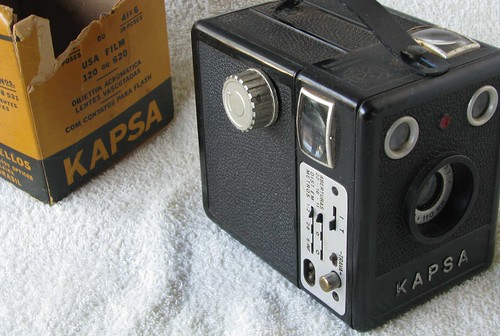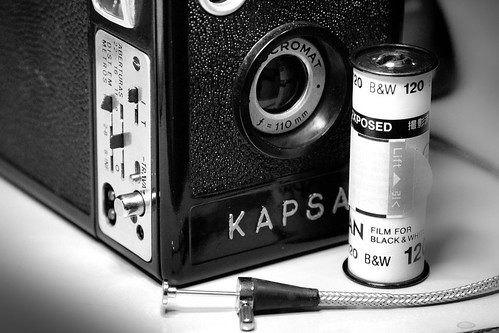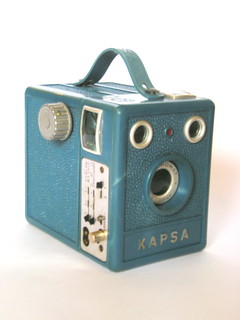Difference between revisions of "Kapsa"
Hanskerensky (talk | contribs) (→Sources/links: <!--Commented out link, page no longer present/available, please remove if not returned by 03/2017 -->) |
m (Minor layout adjustment) |
||
| Line 13: | Line 13: | ||
It was considered a budget camera in comparison to more advanced cameras of the time due to its limited focusing abilities. | It was considered a budget camera in comparison to more advanced cameras of the time due to its limited focusing abilities. | ||
| + | ==Notes== | ||
| + | <references /> | ||
== Sources/links == | == Sources/links == | ||
| Line 19: | Line 21: | ||
* [http://www.flickr.com/groups/kapsa Kapsa user group] on [http://www.flickr.com/ Flickr] | * [http://www.flickr.com/groups/kapsa Kapsa user group] on [http://www.flickr.com/ Flickr] | ||
| − | + | ||
| − | |||
{{Flickr_image | {{Flickr_image | ||
Revision as of 04:50, 30 October 2016

|
| image by Nibelunga O^O (Image rights) |
Kapsa is a Bakelite (and later other plastic) 120 or 620 film 6x9cm/6x4cm box camera made in Sao Paolo, Brazil by D. F. Vasconcellos (DFV)[1]. It was introduced in the early 1950s. It has a hinged mask in the film chamber for conversion to 6x4cm frames. The 110mm Vascromat lens (presumably a meniscus achromat) has two auxiliary lenses giving three focus distances; 1-2 metres, 2-8 metres, and 8 metres-infinity. The camera is fitted with a sector shutter with a speed of 1/100 second and B, with three aperture sizes, f22, f16, and f11. On one side it has a metal panel with all the controls except the film advance knob. Of course it has the two brilliant viewfinders which are typical for box cameras.
It was considered a budget camera in comparison to more advanced cameras of the time due to its limited focusing abilities.
Notes
- ↑ McKeown, James M. and Joan C. McKeown's Price Guide to Antique and Classic Cameras, 12th Edition, 2005-2006. USA, Centennial Photo Service, 2004. ISBN 0-931838-40-1 (hardcover). ISBN 0-931838-41-X (softcover). Page 944.
Sources/links
- Another Kapsa example by Gerson Lessa on Flickr
- Kapsa user group on Flickr

|
| control panel, lens and film roll image by Ricardo Inada (Image rights) |

|
| image by Damélio (Image rights) |